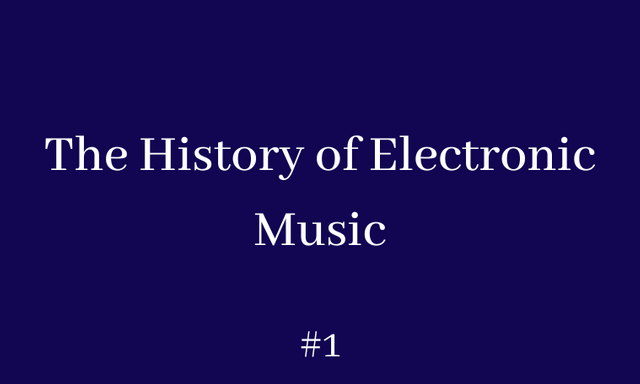The History of Electronic Music
Electronic music has a rich history that spans over several decades. It originated in the early 20th century with the invention of various electronic musical instruments and technology.
In the 1920s and 1930s, electronic instruments such as the Theremin and the Ondes Martenot were invented, paving the way for the development of electronic music. In the 1950s, composers such as Pierre Schaeffer and Pierre Henry began experimenting with electronic sounds and created the genre of musique concrète, which used recordings of real-world sounds and manipulated them to create new musical pieces.
In the 1960s, synthesizers such as the Moog Synthesizer and the Buchla Electro-Music Modular synthesizer were developed. These instruments allowed musicians to create electronic music without the need for tape recordings, and they quickly became popular in various genres of music, including rock, pop, and electronic.
During the 1970s and 1980s, electronic dance music (EDM) emerged and became popular in the underground club scene. This genre, which includes styles such as disco, techno, and house, was created using synthesizers and drum machines.
In the 1990s and 2000s, digital audio workstations (DAWs) and software synthesizers were developed, allowing musicians to create and produce electronic music on their personal computers. The internet also played a significant role in the development of electronic music, with many musicians sharing their work online and collaborating with others from all over the world.
Today, electronic music continues to evolve and has become a widely popular genre, with many sub-genres and styles. It has also influenced various other forms of music, including hip-hop, pop, and rock.
In conclusion, the history of electronic music is a rich and diverse one, and it has had a significant impact on the music industry and culture. From its early beginnings with the invention of electronic musical instruments to its current state as a widely popular genre, electronic music continues to evolve and inspire musicians and listeners alike.
